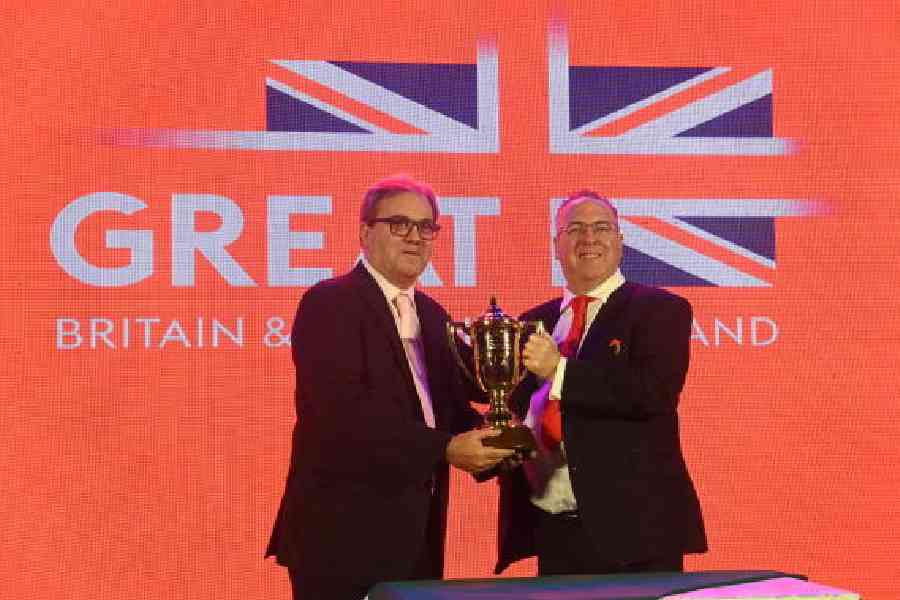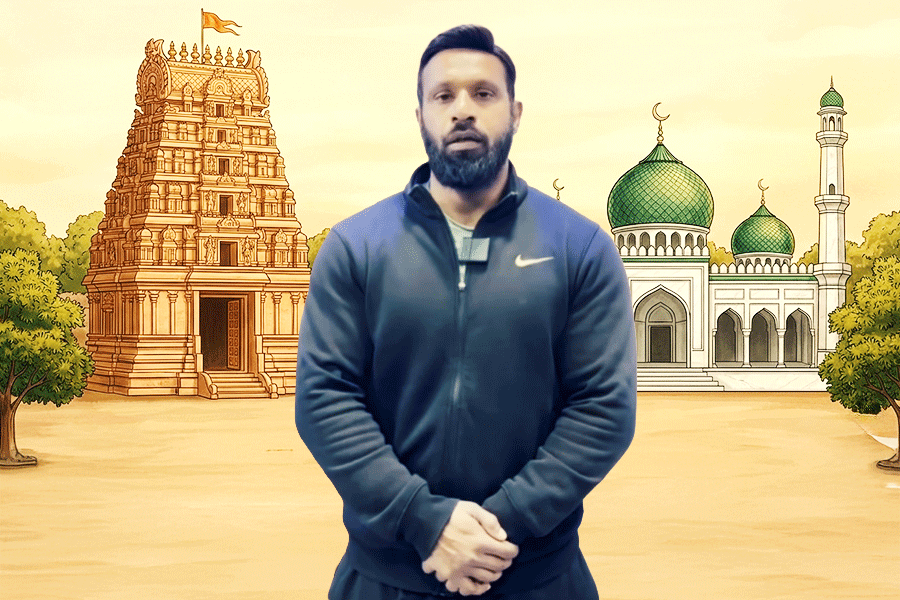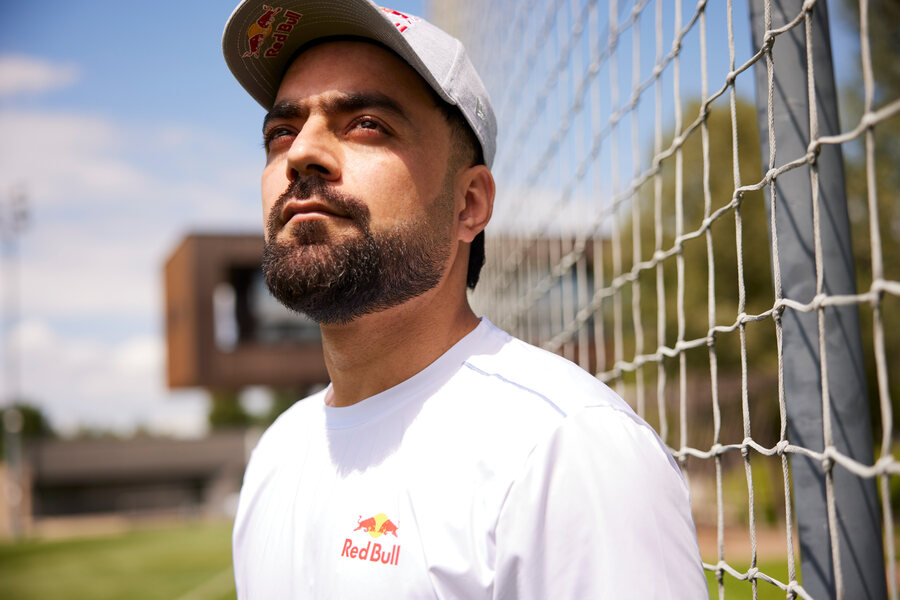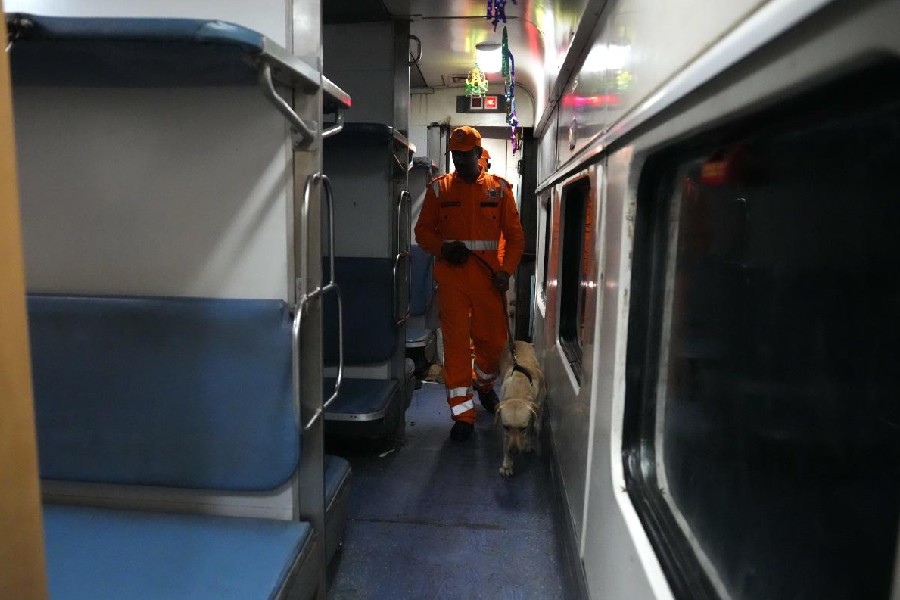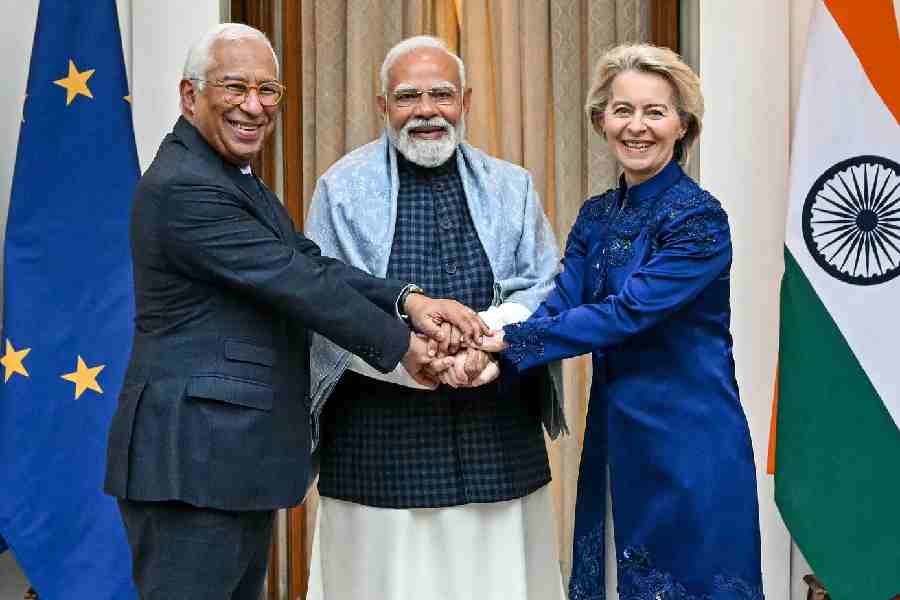The Queen Elizabeth II Memorial Cup was handed over at a ceremonial reception on the lawns of the Royal Calcutta Turf Club (RCTC) on a nippy evening. The trophy, which bears the name of the late monarch, had been presented by her when she visited the city with Prince Philip in February 1961. The annual tradition that continued for the rest of her reign has been perpetuated with the cup now being presented in her memory to the winner of the 2,800m race.
“Earlier, every year Her Majesty the Queen used to send the trophy through the British High Commission in Delhi. The owners of the winning horse used to get a telegram and in later years, an email from Buckingham Palace congratulating them. Now the cup stays with the British High Commission and the replica is given out,” said Enrico Piperno, steward of RCTC, who received the cup from Andrew Fleming, the British deputy high commissioner.
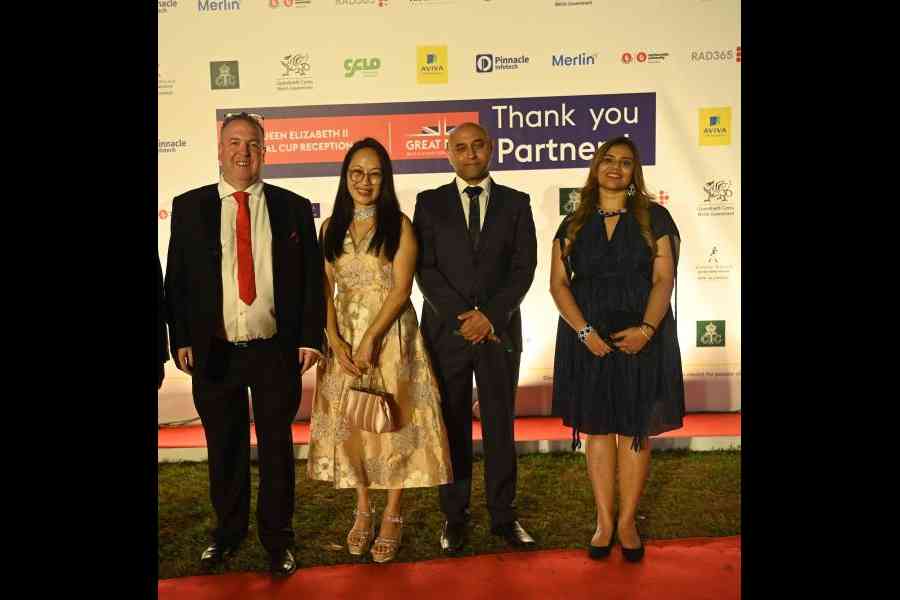
The hosts — British deputy high commissioner Andrew Fleming, his wife Vanita, deputy head of mission Bhaarat Dave and his wife Mansi
In his address, Fleming spoke of the consular district he has to cover. “My predecessor Nick Low had told me that the post in Calcutta covers a geography larger than western Europe, with a population larger than that of the United States. This evening, we have guests here from Jharkhand, Nagaland, Odisha...” he said.
Fleming spoke of a sport other than horse racing in which the deputy high commission has locally made an indirect contribution — rugby. “Tonight’s guests include representatives of the Indian national team, both male and female, who have been nurtured by Paul Walsh, a distant predecessor of my head of mission who established a rugby project two decades ago in Calcutta,” he said, referring to the founder of Jungle Crows, who reached soon afterwards.
Clicking pictures with Fleming and Walsh soon after was a band of players, which included national team vice-captain Sandhya Rai. The daughter of tea garden workers, she is one of the 12 India players who have put the village of Saraswatipur, a tea estate in Jalpaiguri district, on the national map. “There are at least 500 children playing rugby in our village now,” said her teammate Lachmi Oraon. “Rugby gives them access to jobs and scholarships.”
Walsh, who was effusive in his praise of the support extended by Fleming, was not the only expatriate with an India connection. Julia Indira Enzweiler was born with one. The wife of the German deputy head of mission, Georg Enzweiler has returned to the land where her diplomat father was posted. “After landing in Delhi, we went in search of the house where I stayed as a child, on Sardar Patel Road. It’s still there,” said Julia.
Two ladies caught the eye in bright red shawls and black mekhla skirts. “In Nagaland, we can tell who is from which tribe on checking the designs and patterns on dresses,” said Meri Peni, a government official from Nagaland who had come with the deputy resident commissioner of the city’s Nagaland House, Renbeni Ngullie. “We are from the Lotha tribe. We are known to be very meticulous in everything we do,” she said, as her colleague nodded in assent. Wales, incidentally, was the partner country in the Hornbill Festival of Nagaland in December, Fleming mentioned in his address.

